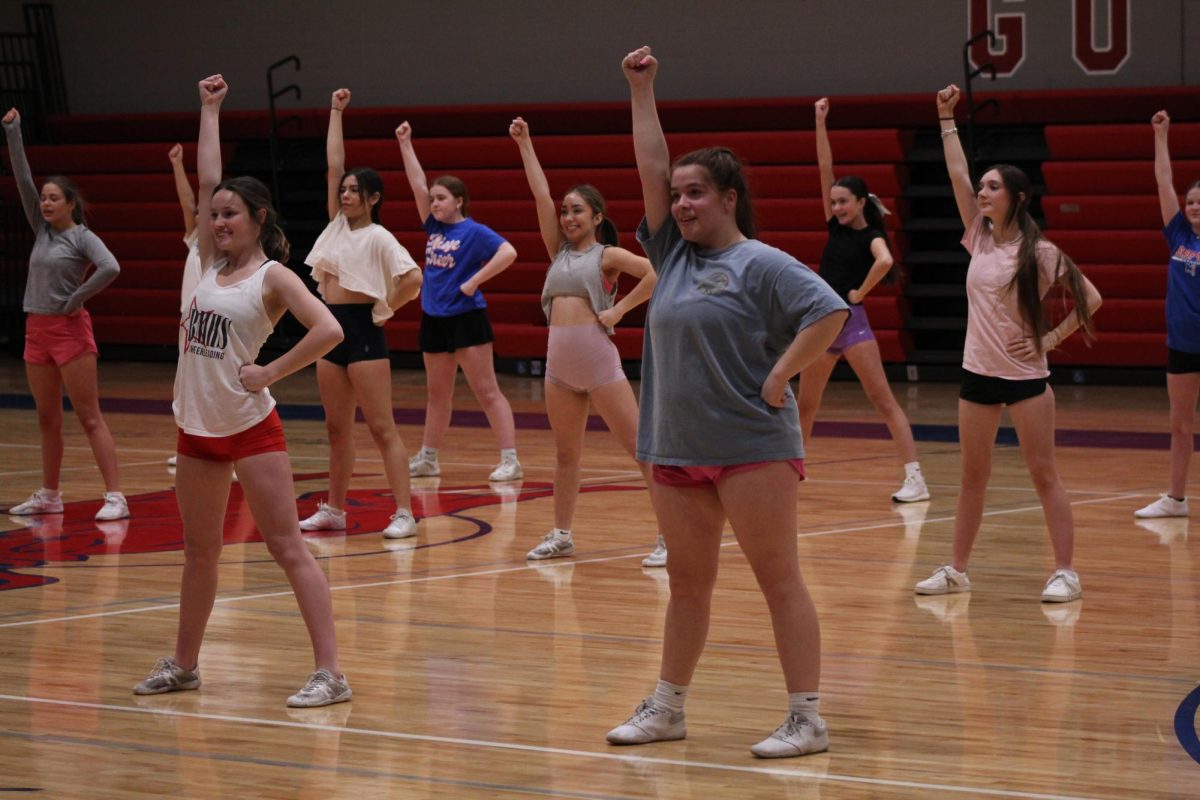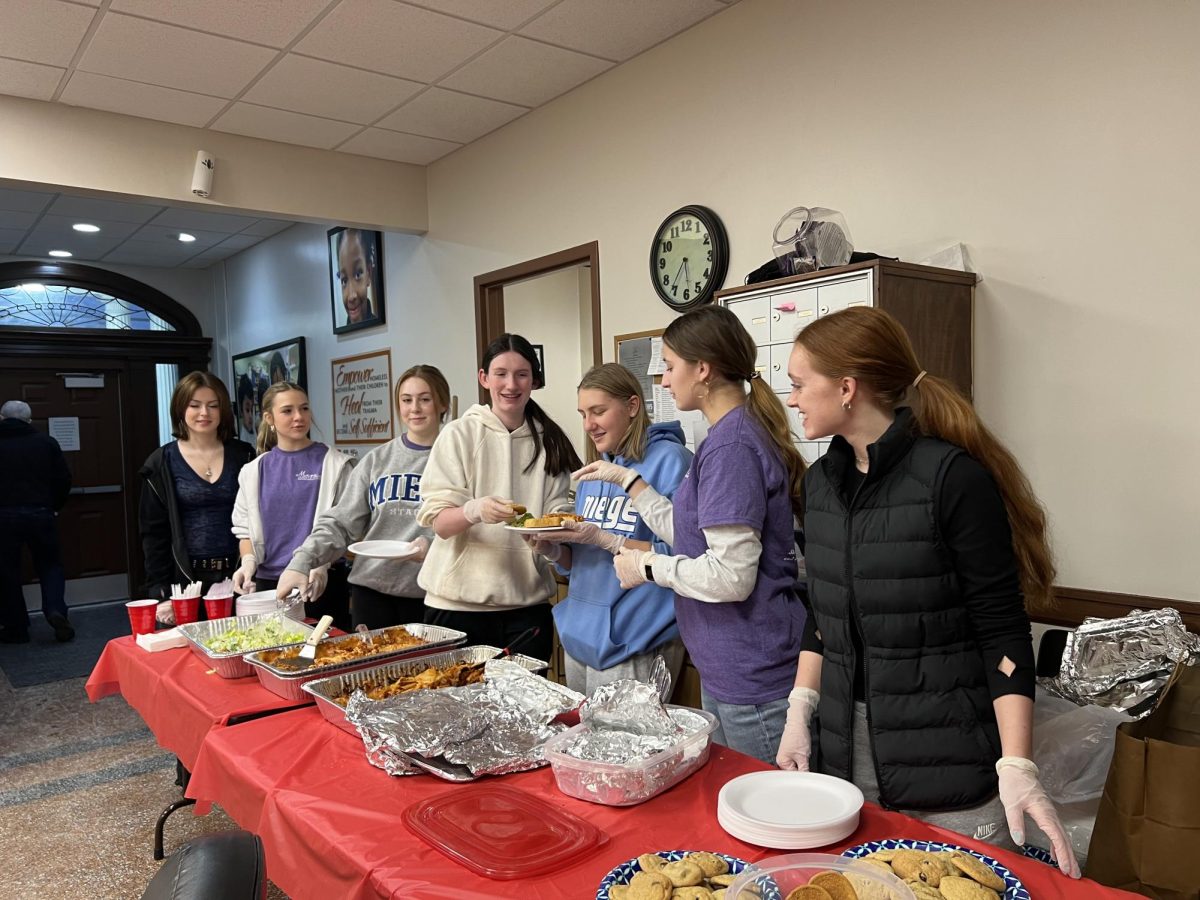With the stress of juggling homework, extracurriculars, jobs and a social life, anxiety and depression rates rise among teens while mental health awareness advocacy increases throughout the school.
According to Compass Health Center, 50% of all lifetime mental illnesses begin at age 14, while one in seven teenagers will experience a mental disorder in their life. School-sponsored organizations and events such as Fully Alive, Impact Day talks and Mental Health Awareness Club provide resources to support students.
Social-emotional counselor Katie Stilwell was hired last year to be a resource for students in times of need. On Mondays in her office, she creates a safe environment for anyone who needs to talk without the added fear of judgment.
“I think for some, it can be scary to ask for help,” Stilwell said. “Many students tell me they don’t want to ‘burden’ their friends or family with their struggles, so they try to manage it all on their own, which can be very isolating. Many teens also experience loneliness associated with feeling misunderstood, left out or friend-less.”
Along with Stilwell, senior herd captains help organize the program, Fully Alive, which carries a mission to yield opportunities to teach and provide information on mental wellness. Each month, herd captains lead their faith families in designated activities surrounding the ‘Fully Alive’ message such as creating anti-bullying posters and listening to professional speakers.
On Sept. 13, licensed therapist Samantha Trujillo, who was brought in through counselor Dan Meira, spoke about mental health work and its importance among teens and students.
“I chose to come and speak because I am passionate about mental health and wish to reduce the stigma around it, especially in the Hispanic community,” Trujillo said. “I struggled in high school myself and wished someone would have come and normalized what I was going through.”
Senior Lucy McArthur says vulnerability is a big factor that holds teens back from opening up about their mental health, alluding to how the pressure of fitting in and being liked takes precedence over how a person is actually feeling.
“I know that I have sometimes felt too scared to speak up about my mental health,” McArthur said. “It’s a really sensitive thing to talk about, but I think the more you talk about it, the less likely you are to struggle.”
In a recent survey of 143 students, 99.3% said that mental health awareness should be a topic of conversation in school. Stilwell agrees that verbally expressing both good and bad feelings can help teens cope, overcome them and gain resolution.
“Awareness months are a great time to bring mental health and wellness into conversations within our community,” Stilwell said. “We want students to know that struggles are a part of life, but we can learn to know ourselves better and what works when those challenges become more difficult.”
Bringing in outside speakers is not just for show according to Dean of Students Alex Keith. Passing on the Faith, hiring professionals who care about the well-being of teens and holding fast to the things that have helped people in the past, go towards the goal of investing in the most important thing: the students.
“Miege always will keep spiritual things paramount as it is the reason for our school,” Keith said. “Any chance for our students to encounter the Lord is good for the overall wellbeing of students and staff alike.”
Junior Sophia Nguyen says teens who push themselves hard to overachieve can often find it difficult to consistently maintain the same level of emotional strength.
“It’s been a rollercoaster of ups and downs for everyone,” Nguyen said. “While finding a community and many friends has made me feel so welcome and happy, I still struggle with burnout and anxiety during the school year. I have always been someone who pushes myself to do well in school and do my best, but being forced to meet deadline after deadline can feel like an endless cycle of stress.”
According to Mental Health America, over 60% of teens with serious cases of depression do not receive any treatment. Nguyen and senior Abby Cleveland believe the school’s staff has does a good job accommodating students when they are battling personal dilemmas.
“I struggle a lot with asking for help, but this community and school has made it easier for me to find help when I need it,” Cleveland said. “This improves my mental health as I always know there is someone to be there for me when I need to unpack what is going on in my life.”
Director of campus ministry Bill Creach emphasizes the importance of leaning on others in times of darkness even though it may be difficult.
“People don’t want to be needy,” Creach said. “They are embarrassed that they have problems, don’t want to burden their friends and family with things or they don’t want to confront what they are struggling with in their lives. Yet when we discover someone we love is keeping a problem from us, we lecture them on why they can come to us anytime about anything. Having outlets for sharing their pain, fear, struggles and losses. It is important to reach out when you are hurting and to know that you are not the only one who is struggling with things in your life.”












